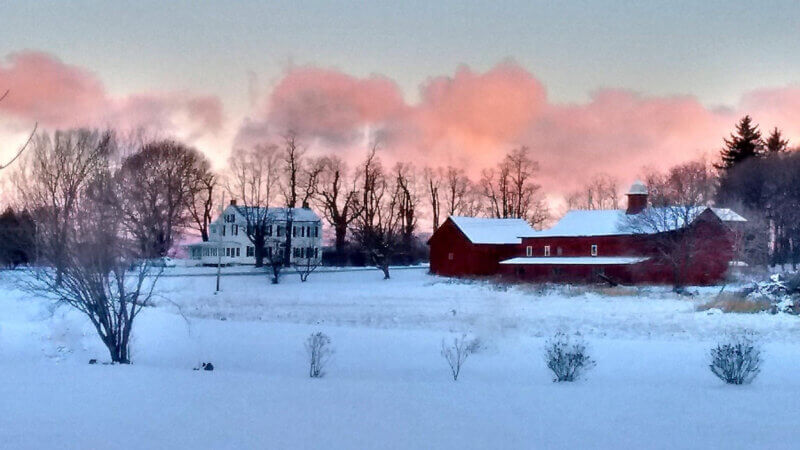Clemmons Family Farm purchased by nonprofit
(This story has been changed to correct the address of the Clemmons Family Farm.)
The Clemmons Family Farm is now owned by a nonprofit organization and plans are for the farm to grow more crops. And art.
Lydia Clemmons, president and executive director of Clemmons Family Farm, expects the farm where she grew up to not only raise more vegetables but more variety.
And the farm will also be able to nurture more African artists in their creative pursuits.
The 138-acre farm at 2158 Greenbush Road, which had been leased for a few years by the nonprofit Clemmons Family Farm, was bought by the nonprofit in a sale that began in the spring and was completed this fall for $2.5 million. The completion of the sale of the historic African American farm was the culmination of an 18-month fundraising campaign.
Clemmons’ parents purchased the farm in 1962 when they moved to Vermont to take jobs at the University of Vermont. The Clemmons were some of the first Black doctors and nurses hired by the university.

The 1700s Big Barn on the Clemmons farm.
The sale coincides with the 100th birthdays of her parents — Dr. Jackson Clemmons and Lydia Clemmons, who were both born in 1923, according to a release.
The property has been a working farm since the 1700s and some of the buildings there date back to those earliest days. Besides working at UVM, the Clemmons worked the farm and restored many of its historic buildings, some of which dated back to the farm’s origins.
The Clemmons also worked to create space at the farm to share African-American history, culture and arts.
The younger Lydia Clemmons said having the farm owned by the nonprofit rather than leased will enable the organization to do some things it was difficult to do before it owned the farm.
As a tenant, the nonprofit was responsible for some minor improvements and property maintenance, but was limited from more major improvements. Owning the farm will enable the nonprofit to grow and offer more.
“Something you cannot do as a tenant, for example, is enter into a long-term lease with someone else,” Lydia Clemmons said. “Now, we can enter into long-term leases with farmers or artists, which gives them security.”
The nonprofit will also be able to make some renovations to the facilities to make them work better for artists, she said.
Since it was established in the 1700s, the farming has been mostly limited to growing hay. Although the Clemmons grew lots of vegetables, it was still small scale.
Lydia Clemmons expects the farm to move to growing more vegetables, particularly vegetables of the African diaspora, like African eggplants, greens, herbs and lemongrass.
“The bigger vision is that this really will be a true economic platform, really giving Black Vermonters a tangible foothold, a place where you can grow your business, do your thing as an artist or a farmer,” she said. “A food chain is not just producing the food and selling the food. It’s also the cooking, the culinary artists and those culinary businesses that can thrive through this new food chain.”
Clemmons said there are not any major renovations planned for the exteriors of any of the buildings, but they do want to make improvements to make the buildings more appropriate for the artists or the programs they want to do.
Some of the funds raised to purchase the farm came through the sale of a conservation easement to permanently protect the farmland, unique natural communities and wetlands held by the Vermont Land Trust and Vermont Housing and Conservation Board. But 10 acres are held outside the easement. Eventually, Clemmons said, they hope to build affordable housing for artists or farmers working on the farm.
“It’s been an honor to join with Clemmons Family Farm and several other partners to protect this land and secure its future,” said Bob Heiser of the Vermont Land Trust. “This farm plays an essential role in connecting people to African-American history and arts, and to Vermont’s agricultural heritage.”
The organization also hopes to hire additional staff, Clemmons said, “It would be lovely to add at least four positions. One of them would include a property manager.”
For more information about the farm, its work and history, visit their website.

